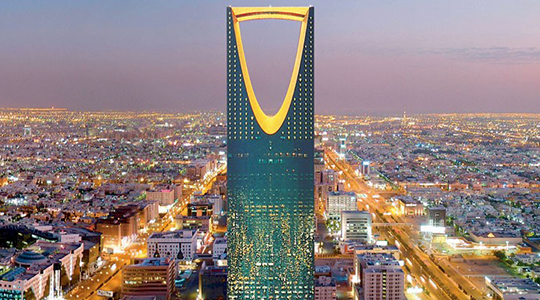Riyadh, Oct 11: In a recent poll, 50% of respondents in Saudi Arabia expect business conditions to improve in one year.

A survey conducted by Bayt.com, the Middle East’s number one job site, and YouGov, a leading market research agency, showed that 40% of the respondents expect the country’s economy to improve in the next six months.
“Despite the negative feelings that have characterized the past few months, there are sparks of optimism among respondents that economic conditions in their countries will improve in the future,” said Suhail Al-Masri, VP of Employer Solutions, Bayt.com.
Overall, only 20% of respondents in the Kingdom of Saudi Arabia believe that their country’s economy has improved compared to 6 months earlier, while 26% claim that it has remained the same. 42% of the respondents believe their country’s economy has receded. When asked about future expectations, 40% of respondents were optimistic about the economy improving, and a lower number believed the opposite to be true (25%). Nevertheless, 21% of the respondents don’t expect any change in the economy.
In terms of business conditions, almost one in four KSA respondents (27%) believe that business conditions are presently good. Conversely, 31% believe that conditions are average, while 40% believe that they are bad.
Regarding expectations for business conditions in a year’s time, 50% of KSA respondents are optimistic, 19% expect the situation to remain unaltered, while 20% are not confident at all, stating that the business conditions have the potential to get worse.
When it comes to job availability, 34% state that there are few jobs available across few industries, while 27% of respondents believe there are few jobs available across various industries. About 16% of KSA respondents claim that there are plenty of jobs available but across a few industries only, while a minor 12% state that there are plenty of jobs available across a wide variety of industries.
When it comes to future availability of jobs, a general negative outlook prevails amongst KSA consumers, where 33% of the respondents believe there will be a decrease of jobs available in their country over the next six months, and 25% state that the availability won’t change. However, 28% are still positive about this, stating that job availability will increase.
Less than 1 in 5 respondents (19%) believe that their current financial position is better now than it was six months ago, while 35% believe that it has remained the same. On a positive note, almost 43% KSA respondents expect their financial situation to improve in the next six months, while 26% say that it will remain the same.
Considering the opinions on the future cost of living, the majority of respondents (65%) expect the cost of living to increase in the next six months. On the other hand, only 6% of them expect it to decrease. When asked about the situation of their current savings compared to last year’s, 16% of KSA respondents claim that their savings have increased, while a quarter (25%) claim that savings have remained the same. 55%, however, believe that their savings have decreased in the same period.
The survey further revealed that 38% of KSA respondents are planning to buy a vehicle for personal use in the next 12 months. Conversely, 51% are not planning on buying a vehicle at all. Of those who are planning on purchasing a vehicle, 45% are planning to buy a new vehicle, while 34% claim to be looking for a used car.
When it comes to investing in property in the next 12 months, more than a quarter of KSA respondents say that they are planning to purchase property (29%). 54% of respondents, however, are not. Of those who are planning on making a property investment, 56% will be looking to buy new property, while 15% will invest in pre-owned estate. Almost half of Saudi Arabia respondents are looking to purchase an apartment (35%), while around a quarter will buy a villa/townhouse/bungalow (31%). 35% will invest in commercial property.
In KSA, 23% of employed respondents feel that the number of employees in their companies has increased over the past six months, while 50% believe the opposite to be true. Over the course of the next six months, 25% of employed KSA respondents expect the number of employees in their organization to increase, while 26% expect this number to remain the same. Conversely, 40% say that the number of employees in their company will decrease.
With regards to satisfaction levels, 42% of employed KSA respondents are satisfied with their career growth opportunities, while 38% are dissatisfied. When it comes to compensation, almost a third of KSA respondents (34%) are satisfied, while almost half of them (43%) are dissatisfied with their current compensation levels. The majority of respondents (53%) are satisfied with the non-monetary benefits they receive, and 40% are satisfied with the level of job security in their current organization.




Comments
Add new comment